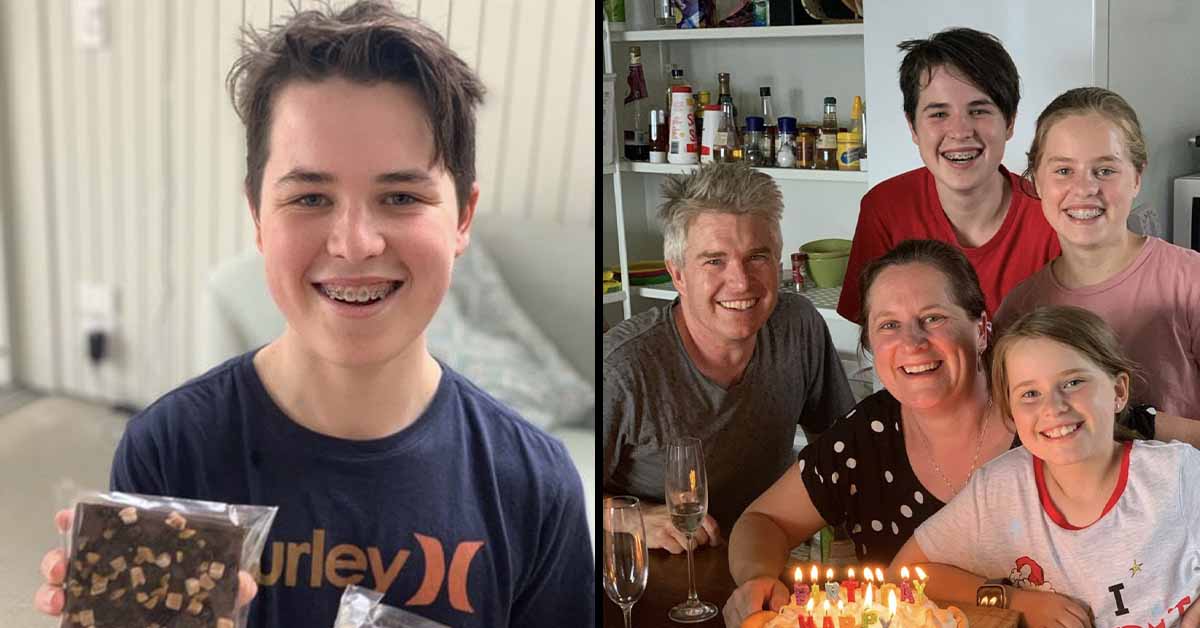15-year-old Max McKenzie was knowledgeable about his severe allergy to tree nuts and proactive in his own care. He died in a Melbourne hospital last year after accidentally ingesting food containing walnuts.
His death from anaphylaxis — a severe, life-threatening reaction to a food, drug, insect venom, or environmental substance — is currently under investigation by a coroner.
Max’s parents say his death was preventable because the hospital did not render their son adequate care.
His father, Ben McKenzie, explains:
Max entered healthcare with 100 percent oxygen levels, and being able to have a conversation and accurately explain his diagnosis. Despite this, he deteriorated and did not receive the care from health professionals that he should have. His brain did not get enough oxygen and he suddenly died in intensive care 13 days later. Our pain is unimaginable and it has not lessened.
Mr McKenzie, an emergency physician, said Max had administered his epinephrine auto-injector and took Ventolin when he realized he was having an anaphylactic reaction.
“He developed sudden asthma as his main symptom and we now know this is how most young people with food allergy die from anaphylaxis,” he said.
Max was well aware of his allergy and took precautions to keep himself safe, including asking questions about food ordered out and carrying his meds.
Said McKenzie:
We were an informed family and we had traveled to remote villages all over the world without problems. But Max died from anaphylaxis in metropolitan Melbourne … Sadly, we are not the only family who have had their child die in Melbourne in this way last year.
“He had the gift of being able to talk to anyone about anything,” said McKenzie. “We always thought he would make a good politician.”
Mr McKenzie is calling for reform to better coordinate specialties of the health system to overcome a “siloing of expertise” that places patients in jeopardy. He insists that although Australia has world-class standards, it lacks coordination between general practitioners, allergists, and critical care doctors when it comes to treating patients with allergies.
We at SnackSafely.com send our sincere condolences to the McKenzies who continue to suffer the loss of Max a year after his passing. Their pain is unimaginable and we hope they are able to take some measure of solace from family and friends.
Speculating what may have happened — or should have happened — while Max was being rendered emergency care for anaphylaxis is fruitless. Questions like whether the staff was prepared to treat a biphasic reaction will have to wait until the coroner’s investigation is completed.
We hope the coming inquest is definitive and provides the information necessary to prevent such occurrences in the future if Max’s passing was indeed preventable.
We do urge those coping with food allergies to take the initiative to ensure their own safety by taking two epinephrine auto-injectors along everywhere, every time.
The best way to beat anaphylaxis is to avoid your triggers. The next best way is to administer epinephrine when you first suspect anaphylaxis and call emergency services.
- Melbourne parents’ plea for change after son’s death: ‘He was an incredible boy’ — nine.com.au
- Max, 15, died after eating walnuts. His parents say the hospital should have saved him — The Sidney Morning Herald






